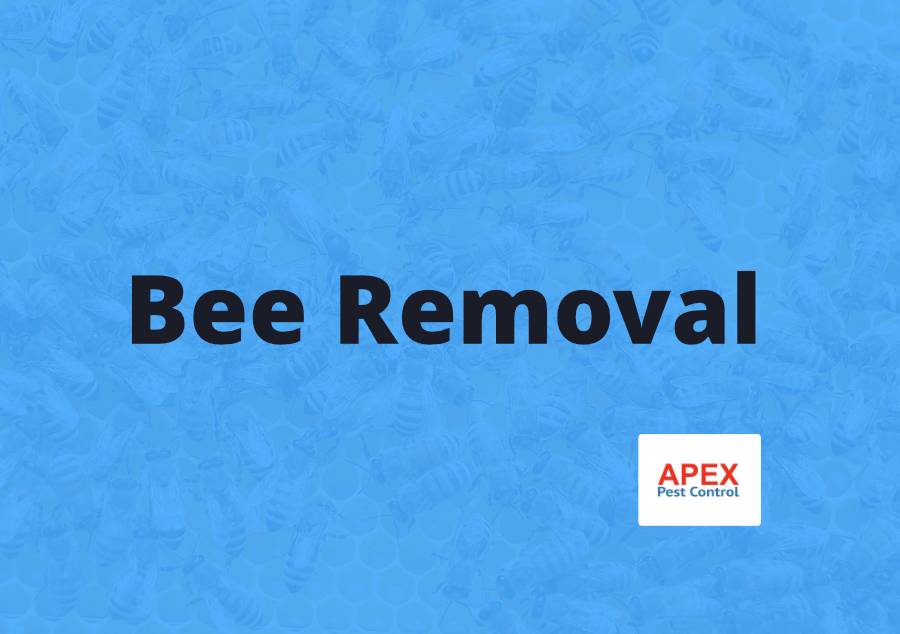What Does Bee Removal Do?
If you’re a homeowner, there’s a good chance you’ve dealt with bees at some point. While they may not be the most popular of creatures, they play an important role in the environment.
If you’ve been having problems with bees and would like to get them removed, it’s important to understand what bee removal entails. This article will go over what bee removal involves and what to expect from the process.
What Is Bee Removal?
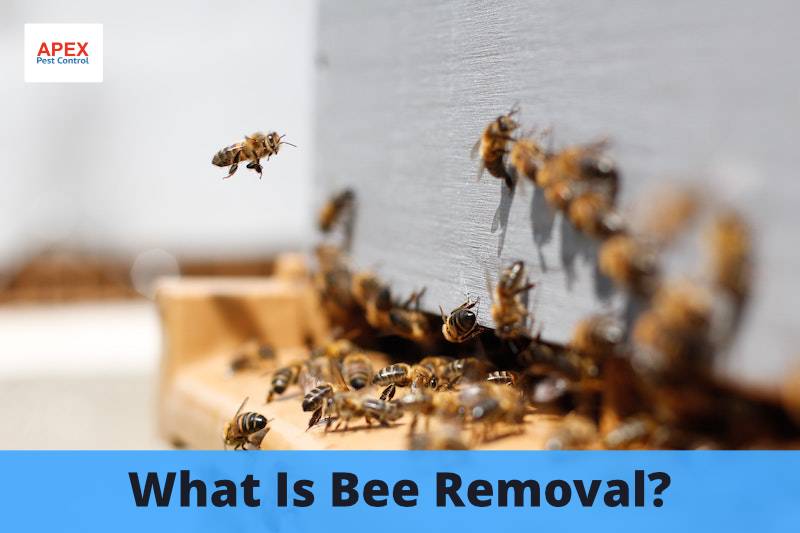
The act of removing bees is known as bee removal. This can be done by skilled bee removal professionals. Professional bee removal often involves transferring the honey bees to a new location where they will be cared for and used as a pollinator, honey producers, and beeswax producers so that they will be able to produce honey.
Honey bees are arguably the most helpful insect species on earth.
Thus, bee removal has both pest control and beekeeping characteristics. Local beekeepers are able to perform live bee removal or save the bees, and they will then either keep or sell the bees or else help whoever is having the bees removed to keep them in a hive. Beekeepers don’t always provide removal services, however.
Types of Bees in the UK
Honey Bee Removal
Many local beekeepers use baffles and collection containers in order to protect and save the bees. Using a one-way wire screen device, if the homeowner has the patience and the know-how, bees can be forced to relocate into a hive next to the new entrance if they leave the building.
Beekeepers scout the honeybee population because honeybees are excellent pollinators. I would highly recommend contacting them before getting a pest control company to do the job. Bee removal becomes more difficult as bee populations grow. Choose a qualified company for bee removal.
Bumble Bee Removal
Humans can experience some pain from bumblebee stings. Being fuzzy creatures, Bumble Bees have yellow and black coloured stripes on their bodies. The body is rounded and soft hair covers it, making it appear and feel fuzzy. Black and yellow colouration act as a warning signal.
Relocating isn’t guaranteed to be a good idea, but it may seem like the best solution. A honey bee nest shouldn’t need to be moved if it is outside or underground. Alternatively, if bee nests are located in a more conventional area such as in bushes, trees, or sheds, you can contact a local beekeeper, the British beekeepers association, or a local pest control company.
Bee Nest Removal
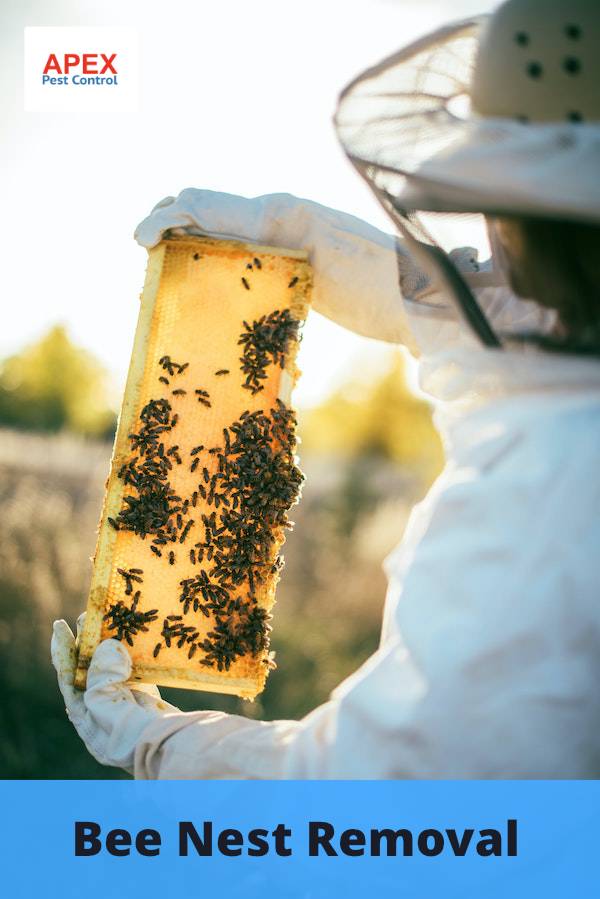
The DIY method may be able to repel bees, but it requires a lot of maintenance and is not always effective. Whenever bees become more aggressive, or if you find a hive on your property, you should contact a professional pest removal service right away.
You’ll just create a swarm of angry bees if you try to remove the hive yourself. Furthermore, a professional can identify nesting sites, locate beehives, and remove them safely.
Depending on where it is located, a hive can grow very large and be difficult to remove. There is no point in leaving any honey or wax on the hive because it will just attract more pests. Bees can often be removed with minimal disruption to the hive, but such a task is best left to professionals.
Bee Pest Control
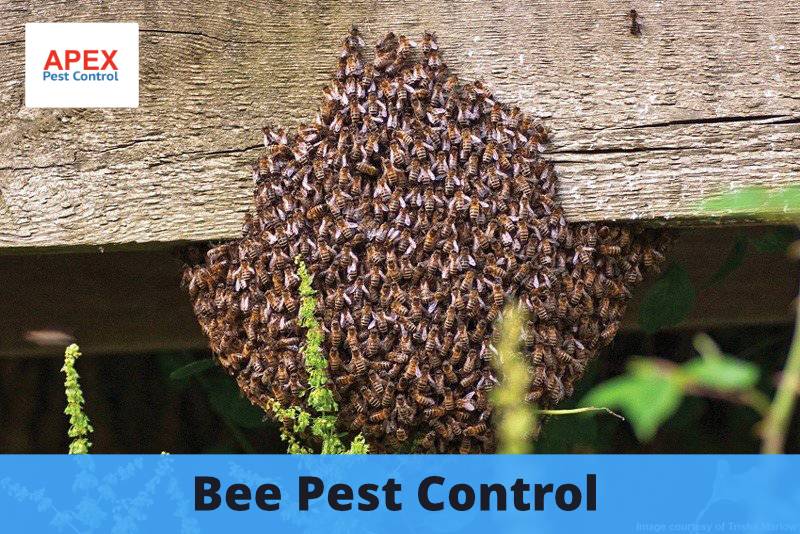
There is no doubt that the pest control industry, in general, takes all the necessary precautions in order not to harm beneficial pollinators such as honey bees, tree bees, bumblebees, and other bees. We have seen tremendous declines in these species, which has put the ecosystem at risk. We have protected some species.
Many countys and towns have taken steps to protect their citizens by banning the use of pesticides regulated by the government. Whether mining bees or worker bees, the killing of bees may not be illegal in some places or countries.
Untrained eyes may not always be able to predict bee activity. Seek professional advice or contact an expert if you want to remove a nest. Allergy sufferers are at risk of anaphylactic shock brought on by bee stings.
FAQs
Can Bees Be Removed Without Killing Them?
It is possible to remove them. The hive will be safely and securely removed by a local beekeeper or a professional beehive removal service without injuring the bees. Beekeepers are typically more than willing to take the hive and care for the bees; most importantly, they will ensure that they survive. Honey bee swarms may settle in bird boxes, or somewhere outside your home.
The nest site can be left alone, but if it does cause you trouble, you may contact a swarm collector to remove nests from your home.
Trying to move a stinging bee colony of 1,000 is a difficult undertaking. If you try to move one yourself, we don’t recommend it.
If in case they are in your home’s wall cavities, call a professional for a more appropriate solution. They can relocate the bumblebees inside your cavity walls and patch up any hole to prevent bees from entering.
Consider cutting out the part of the tree that contains the hive if it is within a tree. Once it’s moved to a secluded space, you won’t have to worry about it in your backyard.
This should be done as soon as possible before bee colonies grow. You should wear protective clothing since the sound of sawing or chopping may aggravate the bees.
Does Pest Control Remove Bees?
Bee elimination plans vary from company to company. While some companies offer bee control as part of an annual program, others provide control and prevention monthly, bimonthly, or quarterly. Once the free inspection is performed, the specific company will advise the schedule.
Most pest control companies spray or dust chemicals into the very small holes in your wood and access points to control pests. These treatments will eventually halt the bee population. Keep in mind that this will not happen immediately. In the event that the treatment isn’t residual, adult bees can be killed, but they are not likely to harm laying eggs.
When the eggs hatch, the larvae will continue to grow until they emerge. In most cases, the pest control company must return several times throughout the growing season to treat and monitor.
What Is the Best Way to Get Rid of Bees?
You should contact a beekeeper or a pest management professional if you need bees removed. Their protective gear is up to date, and they understand the best methods for dealing with the type of bees around your home.
Bees can be removed in a variety of ways, including the removal of entire hives or the use of carpenter bee traps. Although you will trap some bees, you will still have to deal with the infestation. A beekeeper, pest management professional, or entomologist is not likely to recommend killing bees as they are beneficial pollinators.
There are other ways to remove bees, including vacuuming the hive out or covering it with plastic tarps and letting the sun heat the hive to a temperature that bees cannot survive. As a result of these methods, you will likely end up with dozens of angry bees trying to sting you as they will not be effective.
How Much Does It Cost to Get Bees Removed?
A bee removal service’s actual cost will vary widely depending on many factors specific to your situation. Different strategies and scopes of work may be required to resolve the specific issues caused by your bee infestation. In many cases, the location of the hive affects how difficult (or easy) it may be to get the bees to leave your premises.
Furthermore, tight living spaces often elicit swarms and aggressive behaviour during removal, increasing the risk and safety precautions that must be taken. All of these factors increase costs.
Key Takeaways
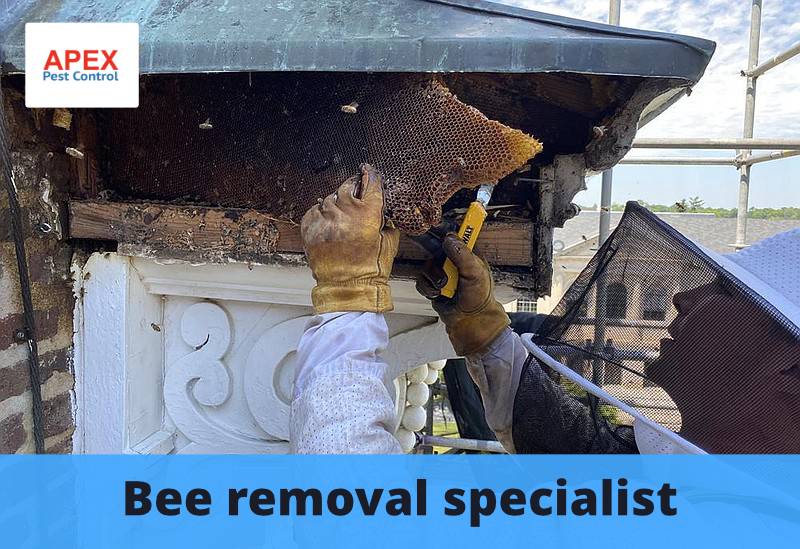
Bees can be dangerous especially to pets or if you have allergies to stings. It’s very important to remove the bees properly so as not to disturb them. Many bee species such as Africanized bees are important pollinators and must be handled with care and caution. As much as possible, we don’t want to kill bees
If you need live honey bee removal or wasp nest removal, you may have to contact pest control, a beekeeper or a bee removal specialist. They have the proper equipment and knowledge to solve your bee problem.

Tony Johnson, Founder & Lead Technician at Apex Pest Control, is a BPCA and NPTA accredited pest management expert with over 35 years’ hands-on experience. Tony specialises in Integrated Pest Management and ensures all services comply with UK pest legislation, including the Wildlife and Countryside Act 1981 and COSHH Regulations 2002. His commitment to continual learning and adapting to industry best practices means clients receive effective, safe solutions for pests affecting homes and businesses across South Yorkshire. Tony’s dedication to professional standards, ethical treatment methods, and local expertise has made him a trusted partner for pest control and prevention.
-
BPCA & NPTA accredited | CHAS certified
-
Committed to UK pest law compliance & safety
-
Focused on effective, ethical pest management for South Yorkshire

